LONDON--(BUSINESS WIRE)--Nov 26, 2024--
Scottish Equity Partners (“SEP”), a UK based growth equity investor, today announced a strategic growth investment in Springtime Technologies (“Springtime”), a leading accounts payable automation software company based in Vienna, Austria. The significant investment from SEP will accelerate Springtime’s product development and expand its market presence globally.
This press release features multimedia. View the full release here: https://www.businesswire.com/news/home/20241126507228/en/
Springtime’s flagship software product, Invoicetrack, streamlines finance and operations workflows through automated data extraction and ingestion capabilities, an AI-powered matching engine, and country-specific processing expertise which has been embedded in the solution. These capabilities enable customers to efficiently process invoices across more than 70 countries.
Accounts payable is often a resource-intensive process for large enterprises, particularly where there are numerous corporate entities operating across different jurisdictions. The problem is particularly acute in process heavy industries, such as manufacturing, life sciences and chemicals, where multi-line, complex invoices are commonplace.
The core strength of Springtime’s Invoicetrack product is its ability to address complex use cases, with customers typically processing millions of invoices per annum. Its blue-chip customer base includes Boehringer Ingelheim, Essity, Festo, and Evonik. The company has achieved profitable growth since inception, and now employs over 190 people.
The global accounts payable automation market is worth more than $3 billion annually and is growing at c.20% per year. Trends towards more prescriptive procurement regulation, combined with increasingly fragmented and volatile global supply chains, are expected to further drive demand for modern software in this market.
Markus Hübl, Founder and CEO at Springtime Technologies, said: “Our mission is to transform financial accounting operations by leveraging cutting-edge technology to drive efficiency and accuracy for global enterprises. SEP is a great fit for Springtime because their strategic expertise in high growth software companies and commitment to innovation align perfectly with our goals of expanding our reach and enhancing our product capabilities.”
SEP’s investment was led by Taylor Rampton, Daniel Muranda, and Angus Conroy.
Taylor Rampton, Principal at SEP, said, “Springtime has a differentiated and market-leading product offering for large enterprises, and its new AI-enabled framework is delivering significant performance improvements for its customers. Markus, Stefan, and the broader Springtime team have built an outstanding business, which aligns with our strategy to partner with capital efficient software scaleups, particularly where they are delivering clear productivity benefits within large organisations. We are delighted to support the team in the next phase of their journey.”
About SEP
SEP is a leading growth investor, specialising in enterprise software and technology scaleup companies in the UK and Europe. As well as investment, SEP works closely with the founders and leadership teams it partners with, and provides hands-on support, expertise and access to its international network. SEP has built a successful track record over the last three decades and takes a long-term collaborative approach to create enduring value. Learn more at sep.co.uk.
About Springtime Technologies
Springtime Technologies, based in Vienna, Austria, specialises in accounts payable automation software for large enterprises. Its flagship product, Invoicetrack, streamlines finance and operations workflows by automating data extraction, leveraging AI-powered matching engines, and integrating country-specific expertise. With over 190 team members and customers in more than 70 countries, Springtime Technologies is a trusted partner for global businesses seeking operational excellence. Learn more at go-springtime.com.


Markus Hübl, CEO, Springtime Technologies (Photo: Business Wire)
MELBOURNE, Australia (AP) — Australia’s House of Representatives on Wednesday passed a bill that would ban children younger than 16 years old from social media, leaving it to the Senate to finalize the world-first law.
The major parties backed the bill that would make platforms including TikTok, Facebook, Snapchat, Reddit, X and Instagram liable for fines of up to 50 million Australian dollars ($33 million) for systemic failures to prevent young children from holding accounts.
The legislation was passed with 102 votes in favor to 13 against.
If the bill becomes law this week, the platforms would have one year to work out how to implement the age restrictions before the penalties are enforced.
Opposition lawmaker Dan Tehan told Parliament the government had agreed to accept amendments in the Senate that would bolster privacy protections. Platforms would not be allowed to compel users to provide government-issued identity documents including passports or driver’s licenses. The platforms also could not demand digital identification through a government system.
“Will it be perfect? No. But is any law perfect? No, it’s not. But if it helps, even if it helps in just the smallest of ways, it will make a huge difference to people’s lives,” Tehan told Parliament.
Communications Minister Michelle Rowland said the Senate would debate the bill later Wednesday.
The major parties’ support all but guarantees the legislation will be passed by the Senate where no party holds a majority of seats.
Lawmakers who were not aligned with either the government or the opposition were most critical of the legislation during debate on Tuesday and Wednesday.
Criticisms include that the legislation had been rushed through Parliament without adequate scrutiny, would not work, would create privacy risks for users of all ages and would take away parents’ authority to decide what’s best for their children.
Critics also argue the ban would isolate children, deprive them of positive aspects of social media, drive children to the dark web, make children too young for social media reluctant to report harms they encountered and take away incentives for platforms to make online spaces safer.
Independent lawmaker Zoe Daniel said the legislation would “make zero difference to the harms that are inherent to social media.”
“The true object of this legislation is not to make social media safe by design, but to make parents and voters feel like the government is doing something about it,” Daniel told Parliament.
“There is a reason why the government parades this legislation as world-leading, that’s because no other country wants to do it,” she added.
T he platforms had asked for the vote on legislation to be delayed until at least June next year when a government-commissioned evaluation of age assurance technologies made its report on how the ban could been enforced.
Melbourne resident Wayne Holdsworth, whose 17-year-old son Mac took his own life last year after falling victim to an online sextortion scam, described the bill as “absolutely essential for the safety of our children.”
“It’s not the only thing that we need to do to protect them because education is the key, but to provide some immediate support for our children and parents to be able to manage this, it’s a great step,” the 65-year-old online safety campaigner told The Associated Press on Tuesday.
“And in my opinion, it’s the greatest time in our country’s history,” he added, referring to the pending legal reform.
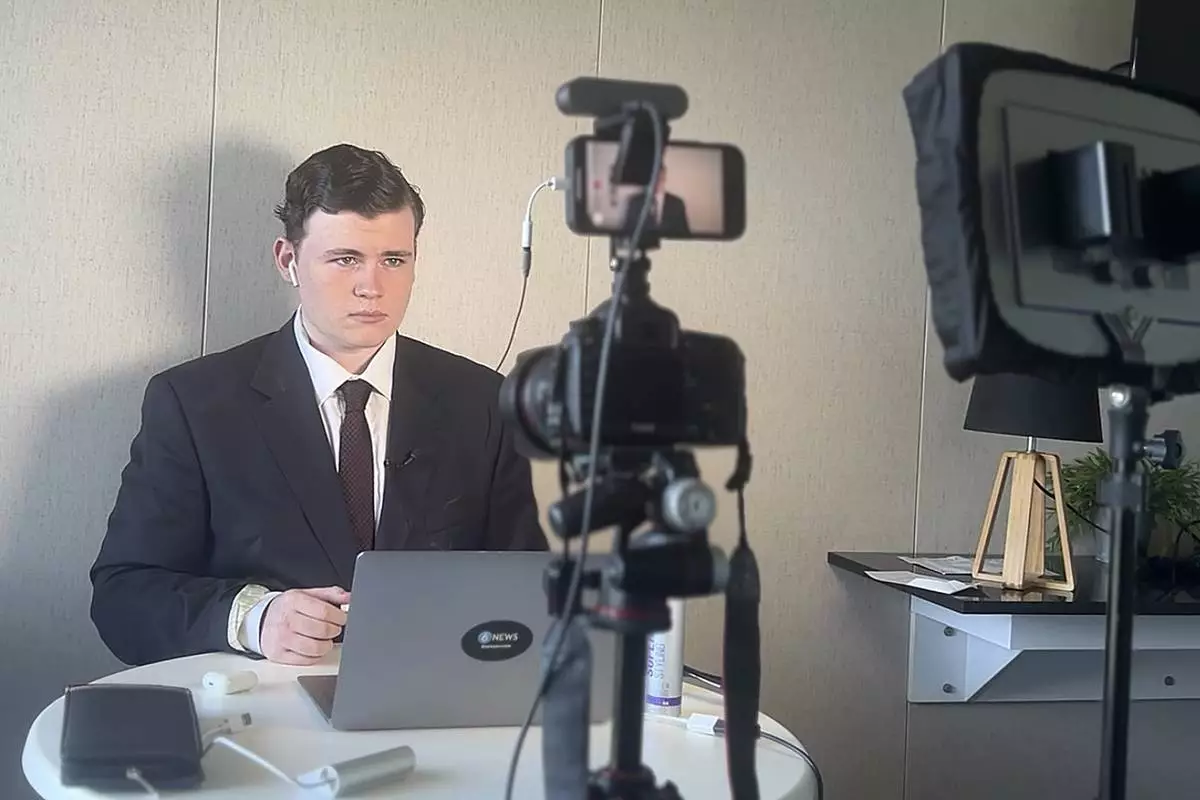
In this image made from video released by Leo Puglisi, 17-year-old Leo Puglisi records his online streaming news service 6 News Australia, from Melbourne, Australia in January 2024. (Leo Puglisi via AP)
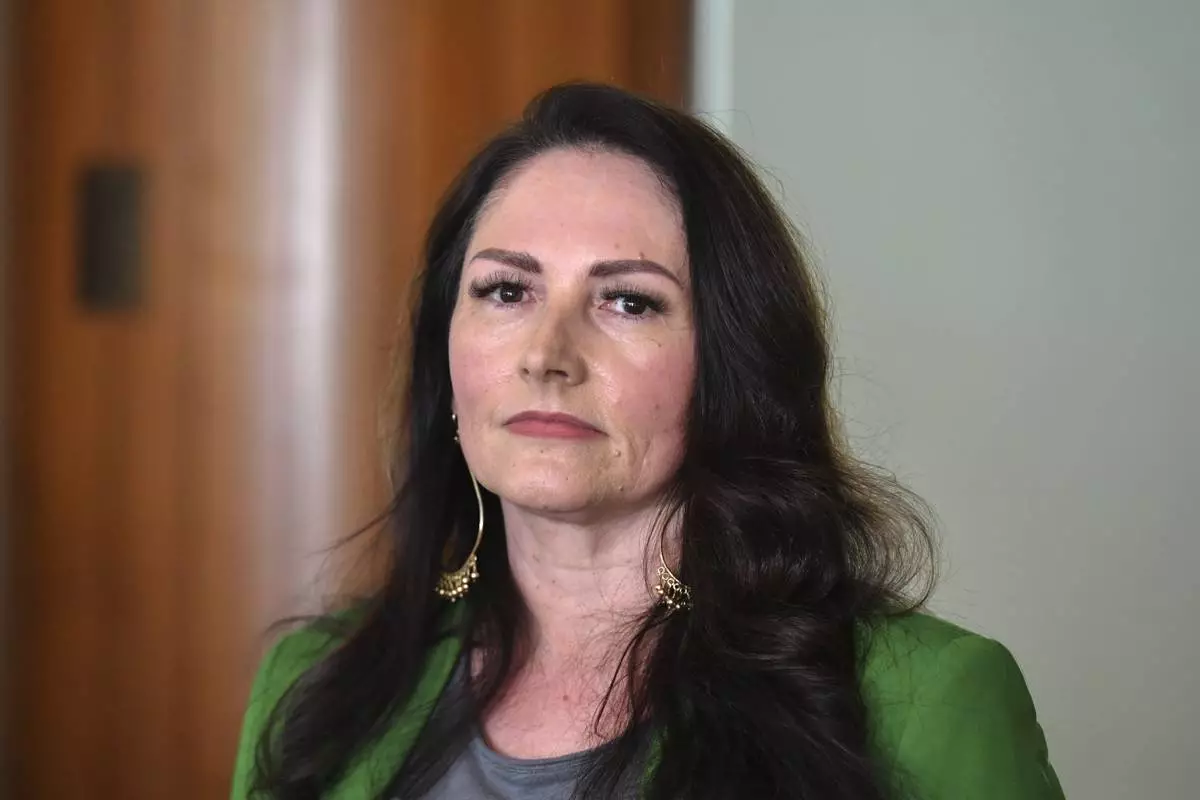
Online safety advocate Sonya Ryan attends a press conference at Parliament House in Canberra, Australia on June 15, 2021. Ryan knows from personal tragedy how dangerous social media can be for children. (Mick Tsikas/AAP Image via AP)
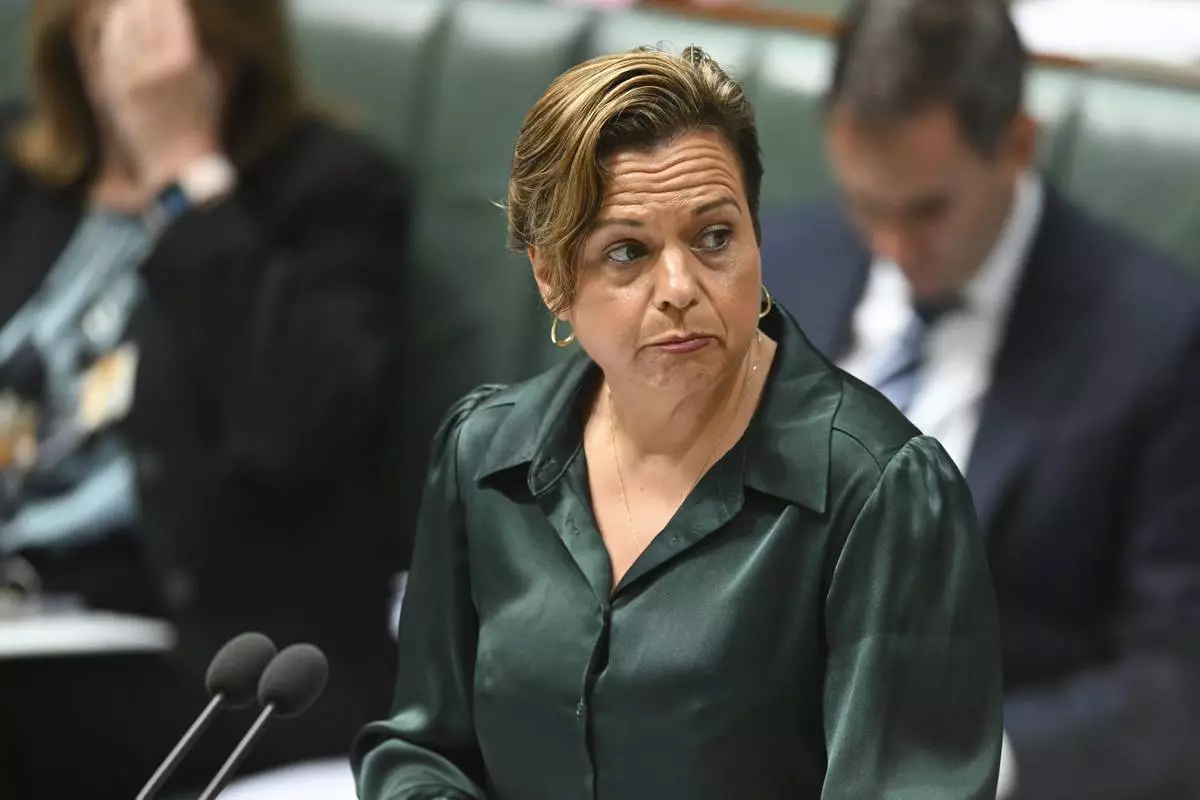
Australian Communications Minister Michelle Rowland speaks during House of Representatives Question Time at Parliament House in Canberra, Monday, Nov.18, 2024. (Lukas Coch/AAP Image via AP)
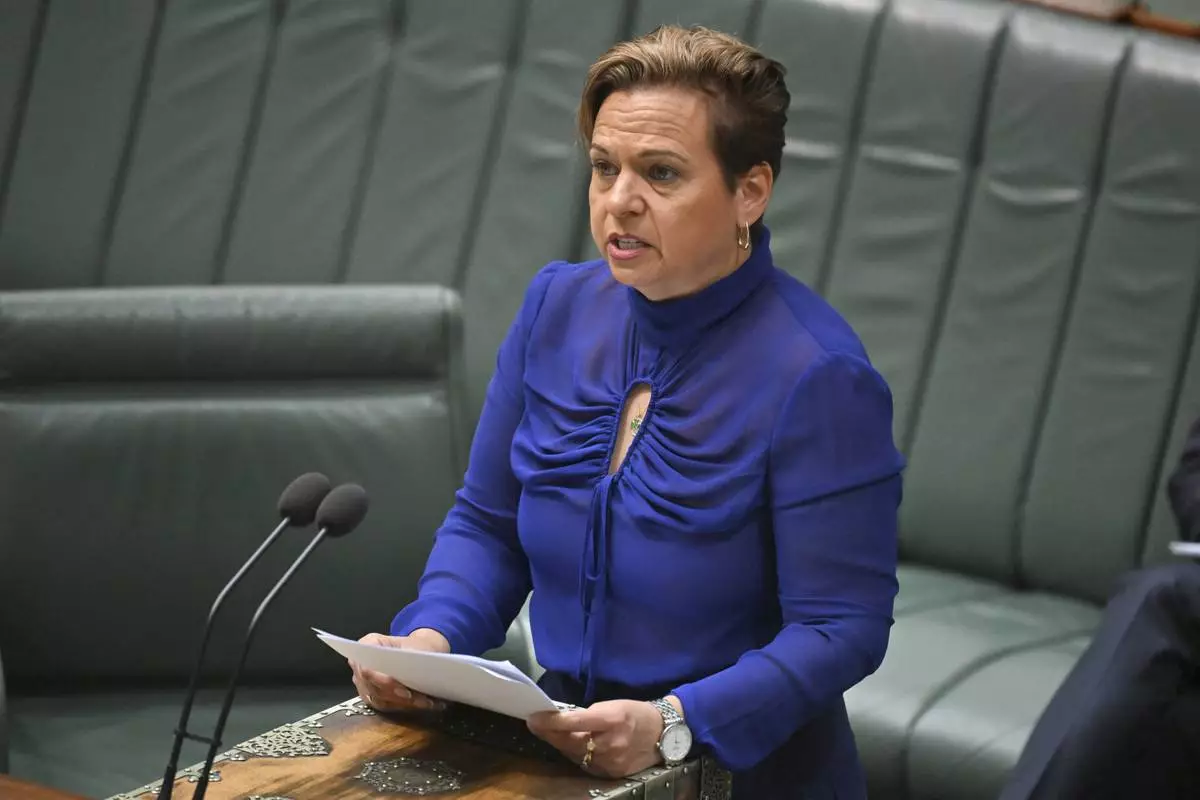
Australia's Minister for Communications, Michelle Rowland, introduces the Online Safety Amendment Bill in the House of Representatives at Parliament House in Canberra, Thursday, Nov. 21, 2024. (Mick Tsikas/AAP Image via AP)/AAP Image via AP)
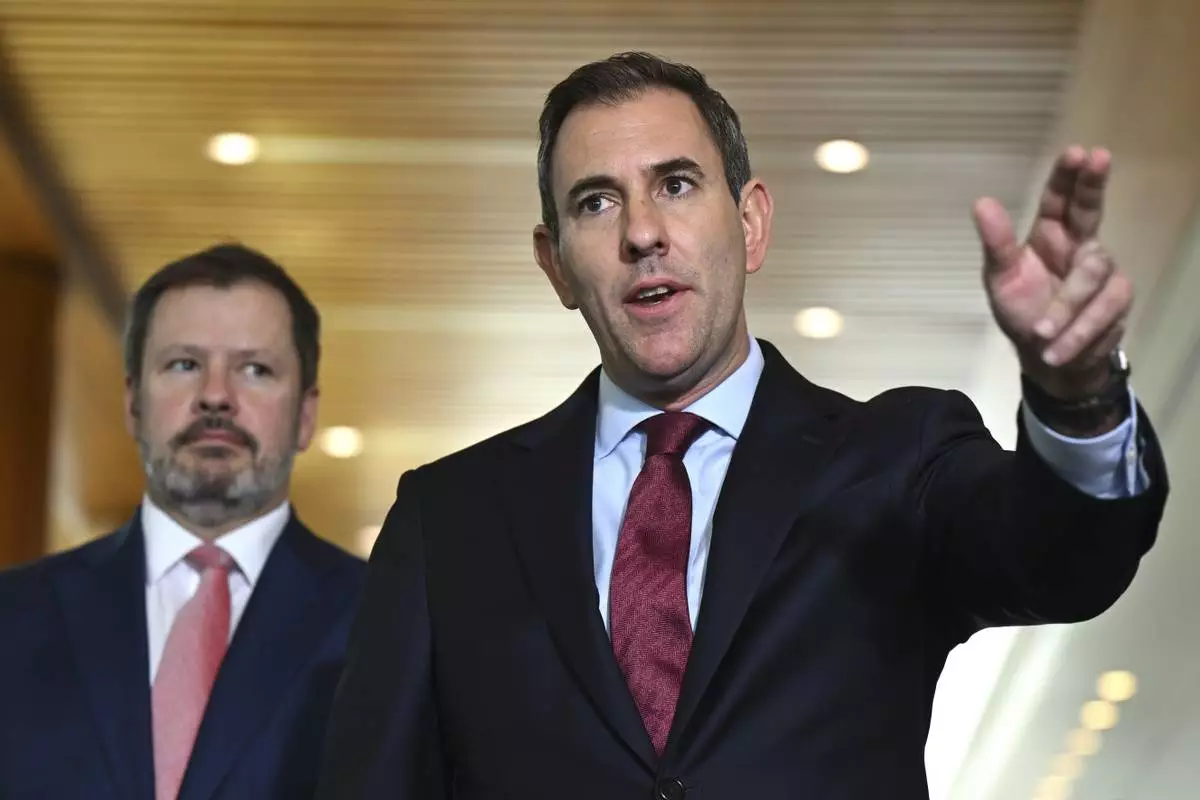
Australian Treasurer Jim Chalmers, right, gestures as he and Industry Minister Ed Husic speak to the media during a press conference at Parliament House in Canberra, Friday, Nov. 22, 2024. (Lukas Coch/AAP Image via AP)

A teenager uses his mobile phone to access social media, Sydney, Wednesday, Nov. 13, 2024. (Dean Lewins/AAP Image VIA AP)

















